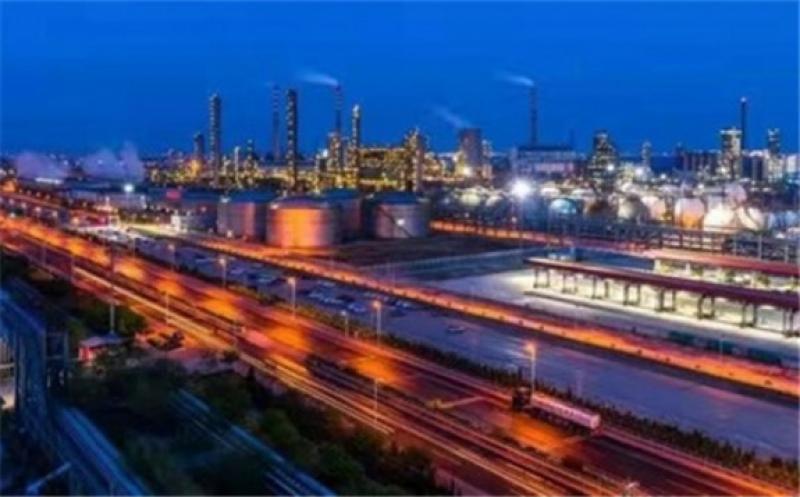China's Sinopec has developed a steam-cracking technology to convert oil directly into high-demand petrochemical products such as ethylene and propylene, cutting costs and production times as well as significantly reducing carbon emissions.

The technology converts crude oil directly into ethylene, propylene and other chemical products ("crude-to-chemicals") and realizes the first industrial application of crude oil steam-cracking technology in China. The milestone is of great significance to the transformation and upgrading of China's petrochemical industry, also contributing to achieve "dual carbon" goals.
The crude oil steam-cracking technology is one of the "crude-to-chemicals" solutions which "skips" the traditional crude oil refining process to directly convert crude oil into valuable chemical products like ethylene and propylene – analogous to making bread directly with wheat and eliminating the flour grinding process. This approach will greatly shorten the production process, lower production costs and significantly reduce energy consumption and carbon emissions.
The technology was developed and engineered by Sinopec's Beijing Research Institute of Chemical Industry and Sinopec Engineering Group (SEG) and the industrial testing was carried out at Sinopec Tianjin. It has applied for 45 Chinese patents for invention and one international patent for invention. At present, ExxonMobil and Sinopec are the only two companies to successfully achieve industrial application of crude oil steam-cracking technology worldwide. It's estimated that for every 1 million tons of crude oil processed by this technology, nearly 500,000 tons of chemical products can be produced, 400,000 tons of which are high-value products such as ethylene, propylene, light aromatics and hydrogen. Overall, Sinopec's technology has reached an internationally-advanced level and presents huge economic value and potential.
A basic raw material of chemical products, ethylene is coined the "mother of the petrochemical industry," and is one of the key benchmarks to measure the development level of a country's petrochemical industry. As people's living standards continues to improve, the global demand for chemical products is also growing, and as basic raw materials, the demand for ethylene and propylene has also increased accordingly. In general, the raw materials needed for producing ethylene and propylene must go through the crude oil refining process at the refineries, the production process of which is not only longer, but also only 30 percent of the crude oil is used to produce the chemical raw materials.
Sinopec has always emphasized the R&D and application of "crude-to-chemicals" technologies. In April 2021, the catalytic cracking technology of crude oil independently developed by Sinopec's Beijing Research Institute of Chemical Industry, another "crude-to-chemicals" solution, also completed industrial application in Yangzhou, which has made China a leader in catalytic cracking of crude oil globally.
Similar to the crude oil steam-cracking technology, the chemical yield of catalytic cracking is also about 50 percent, and combining the two technologies is expected to increase the total amount of chemicals produced by crude oil to more than 70 percent, which will become an economically efficient solution for "crude-to-chemicals" conversion in the future.
Sinopec is preparing to carry out the development and engineering design of packaged technology for the production of ethylene by steam-cracking 1 million tons of crude oil at its Tahe company in Xinjiang Uygur Autonomous Region, building an industrial demonstration plant for the direct production of chemicals from crude oil and establishing a new model for the transformation and development of China's petrochemical industry.
For the large-scale ethylene project planned for the future, the crude oil steam-cracking technology will be included in the key technology comparison and selection scheme, which will provide strong support to relieve the contradiction between supply and demand as well as aiding the enterprises' transformation and upgrading, making greater contributions to achieving 'dual carbon' goals.